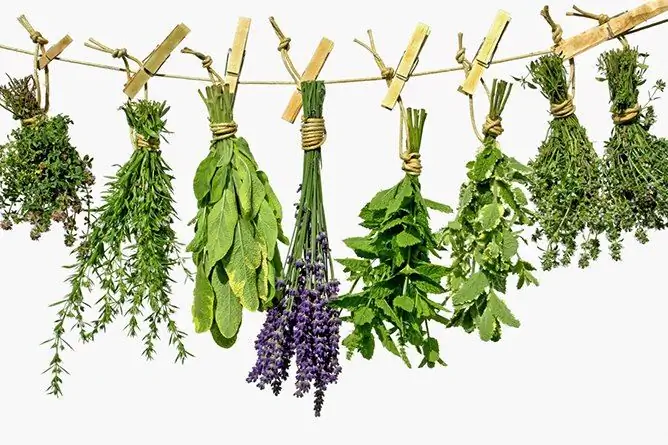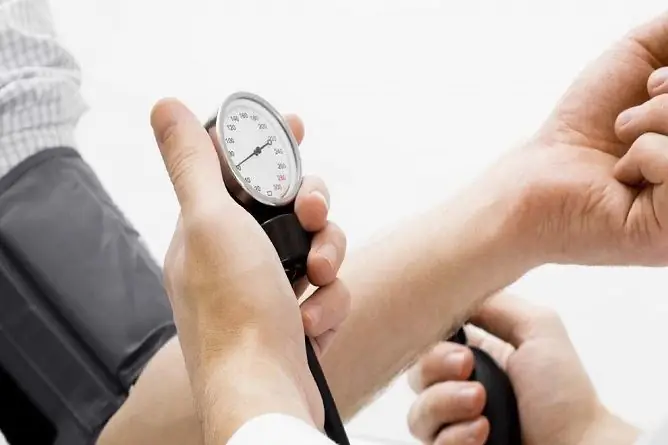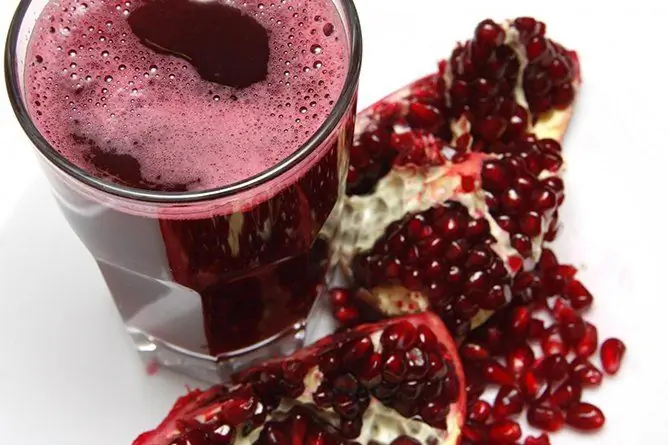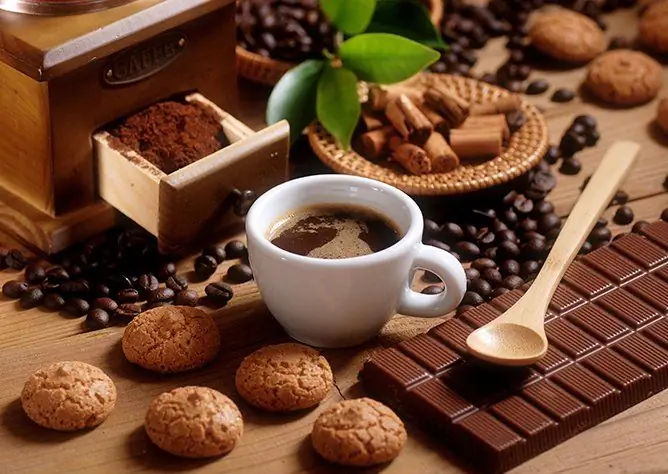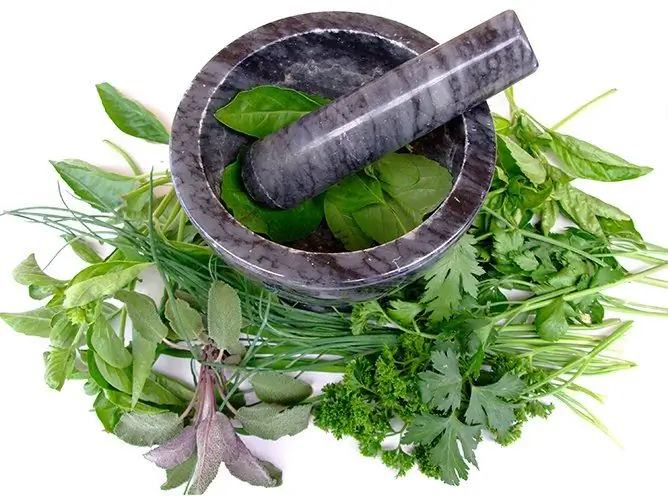- Author Rachel Wainwright wainwright@abchealthonline.com.
- Public 2023-12-15 07:39.
- Last modified 2025-11-02 20:14.
Herbs that increase blood pressure: which herbs increase blood pressure and can be used for hypotension
The content of the article:
-
How herbs raise blood pressure
- Ginseng
- Liquorice root
- Eleutherococcus
- Ginger
- St. John's wort
- Tea
- Video
Medicinal herbs that increase blood pressure are good because they can be used in cases where drug therapy is not indicated.
Low blood pressure (hypotension) is as serious a pathology as hypertension. A persistent and prolonged decrease in blood pressure leads to circulatory failure, which means damage to vital organs, since it is impossible to ensure blood circulation in full if the vessels do not maintain tone and poorly conduct blood. Therefore, in medical practice, a lot of attention is paid to the problem of low pressure. But pharmacological drugs are not always the best method of treatment, and besides, they cannot be taken independently and without medical indications. But you can take home herbal remedies.
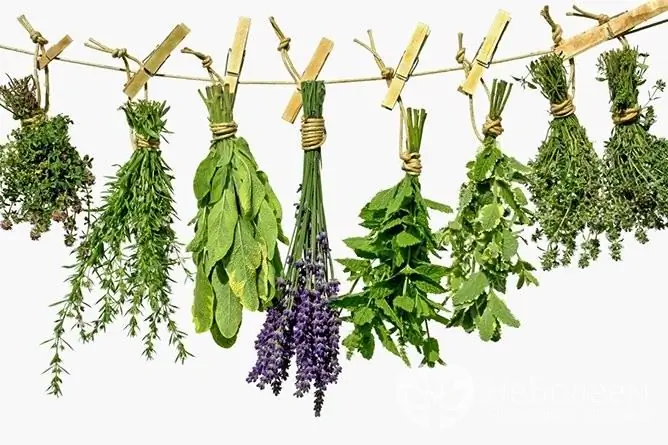
Often, with hypotension, the use of medicinal herbs is more preferable than drug therapy.
How herbs raise blood pressure
Medicinal plants used for hypotension act on mechanisms that maintain a normal level of pressure in the body. Basically, they have three points of application - the heart, blood vessels, blood.
The upper systolic pressure depends on the heart, or rather on the frequency and strength of the contractions of the heart muscle. This indicator decreases when the heart is not beating hard enough, and the shock release of blood is below normal. Many plants have a cardiotonic (heart-toning) effect, so they increase blood pressure in a short time.
The vessels maintain their tone constantly, being in moderate tension, so that the pressure remains fixed, and the blood flow rate is appropriate in any part of the circulatory system. The tone is set not only by the nervous system, but also by the humoral route - with the help of biologically active substances. Herbal extracts can act as such stimulants by constricting blood vessels and increasing blood pressure.
Blood has specific rheological properties that can vary depending on the amount of fluid in the body, the total number of cells in the circulating blood, in particular red blood cells, blood flow rate and other factors. Medicinal plants allow to achieve the normalization of blood density.
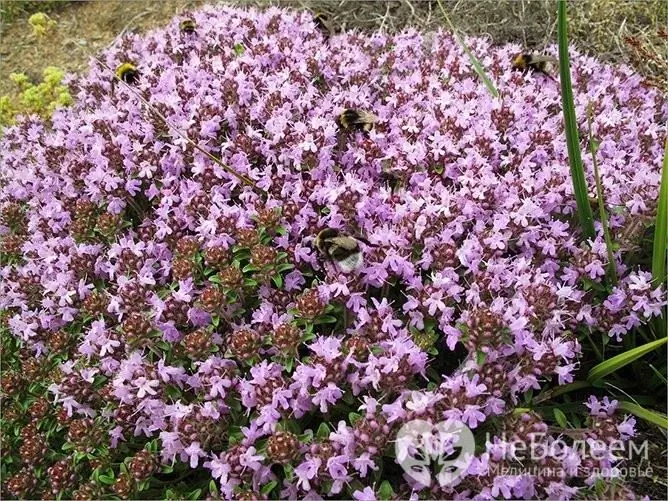
Thyme is one of the herbs that has the ability to raise blood pressure
What are the best herbs for low blood pressure? These are licorice root, eleutherococcus, thyme, St. John's wort, ginger, ginseng, strong black or herbal tea (fees allow you to combine the effects of several plants, getting a more effective drug).
Ginseng
Ginseng is an adaptogen that has a powerful vasoconstrictor effect, therefore it is often included in the list of herbs that increase blood pressure, at number one. Its distinguishing feature is its high content of vitamin C and other antioxidants, so it also fights free radicals. These properties make preparations from ginseng effective for increased physical exertion, in old age, with oncology. Ginseng strengthens the heart muscle, and thus has a positive effect on the cardiovascular system.
Ginseng tea is prepared simply: 2 teaspoons of the plant root in a glass of boiling water. After straining and cooling, the drink is consumed three times a day.
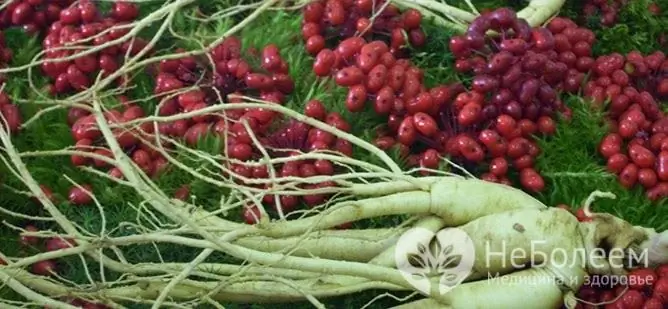
Ginseng is a natural adaptogen, a stimulant of the nervous system
Ginseng is a powerful remedy that should not be abused; when therapeutic doses are exceeded, it can cause side effects, including tachycardia, arrhythmia, and arterial hypertension.
Liquorice root
Licorice is a plant widely used in pharmacology and is often included in medicinal syrups. Its active ingredient is glycyrrhizin. The mechanism of action is humoral - the substance increases the level of aldosterone, which is produced by the adrenal glands. The main physiological effect of aldosterone is sodium retention in the body in exchange for potassium, which is excreted in the nephrons of the kidneys. Sodium, in turn, has a strong osmotic activity, therefore it retains water, attracts it back into the bloodstream. When the volume of circulating blood increases, the heart reflexively contracts more strongly, and the pressure increases. Long-term use of licorice can lead to hypokalemia - a lack of potassium in the body, so it is better to limit the intake of drugs of this plant to two weeks. In addition, they can only be drunk by peoplenon-diabetic - licorice root contains many monosaccharides.
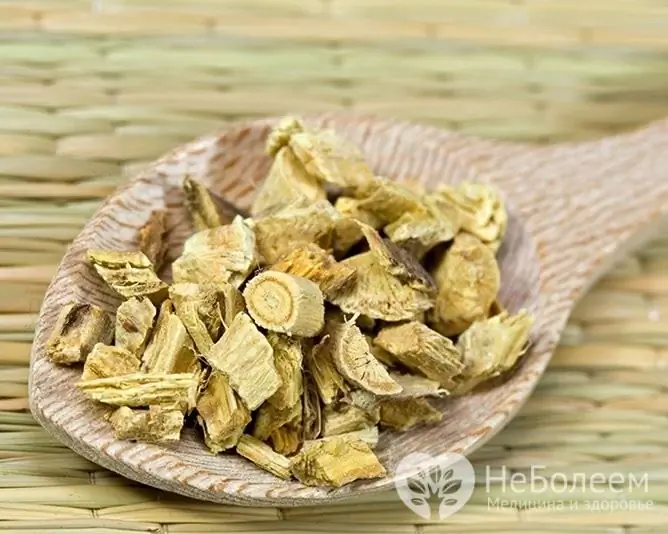
Dry licorice root is used to make a decoction that increases blood pressure
Dried licorice root can be purchased freely at the pharmacy. The decoction from it is prepared as follows: pour a teaspoon of crushed root with a glass of boiling water, cover the container and leave for 5-7 minutes, then strain, cool slightly and drink twice a day, morning and evening before meals.
Eleutherococcus
One of the most powerful blood pressure-raising herbs. The active substances contained in it tone up, increase the frequency and strength of heart contractions, as well as peripheral vascular resistance, thereby increasing pressure.
Eleutherococcus belongs to the group of adaptogens - it normalizes metabolic processes, has a beneficial effect on immunity, enhancing it, increasing the body's natural resistance to pathogens. The medicinal plant acts quite quickly, and its intake is accompanied by a surge of strength and energy.
There are several pharmaceutical forms of the release of Eleutherococcus, the most common of which is a tincture based on ethyl alcohol. You can purchase it or make it yourself. The crushed plant is filled with 40% ethanol in a ratio of 1: 5, after which it is infused for a month, then filtered. The resulting product can be added to tea or water a few drops in the morning.
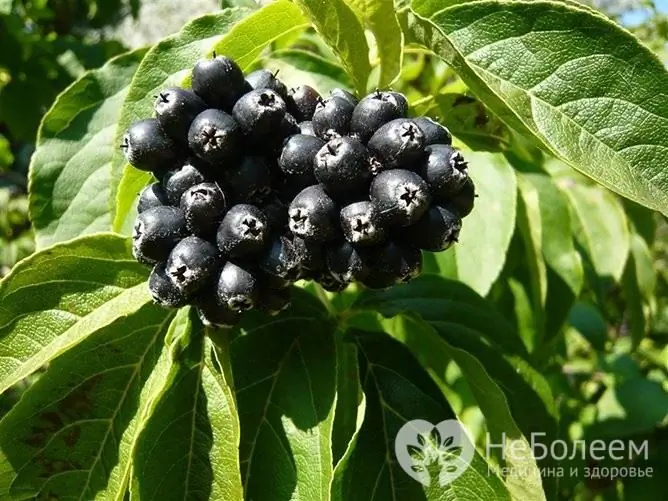
Eleutherococcus, like ginseng, refers to adaptogens, that is, it strengthens the immune system
Eleutherococcus has a fairly strong stimulating effect, so it can cause insomnia and loss of appetite with prolonged use. Not recommended for pregnancy and lactation.
Ginger
The plant has anticoagulant (counteracts platelet adhesion and blood coagulation), antispasmodic and anti-inflammatory effects, strengthens the immune system. A feature of ginger is its versatility - it lowers high blood pressure, and low pressure increases.
Ginger can be used as an additive to tea, and added to various dishes as a spice, and in pickled form.
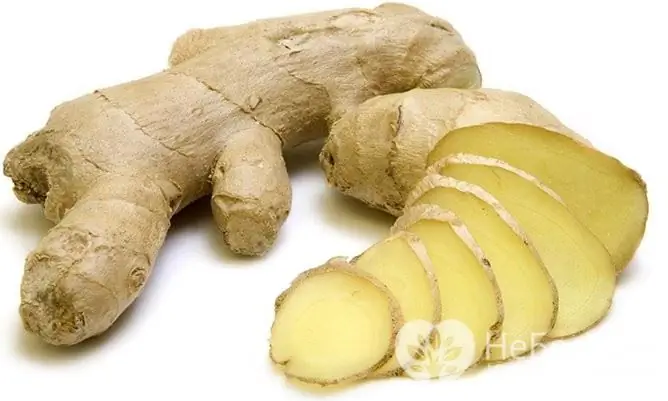
Ginger root can be used in any form - both independently and in the form of tea, and as an additive to dishes
Ginger tea helps against hypotension, with infectious diseases, it is drunk from the head, with pathologies of the gastrointestinal tract. Tea can be prepared either in a regular container or in a French press. It is not recommended to brew ginger tea with too hot water - in boiling water, some useful substances are destroyed, and the medicinal properties of the drink will be reduced.
St. John's wort
St. John's wort not so much increases, but stabilizes pressure, does not allow its sudden jumps and falls. The active components of the plant act on the central nervous system, exciting it and thereby increasing the tone of the peripheral vessels. It can be used both as a stand-alone remedy and as part of herbal preparations.
For 0.5 liters of hot water, take a tablespoon of vegetable raw materials, steamed for half an hour. It should be used once a day to prevent hypotension and three times (before meals) with prolonged low blood pressure.
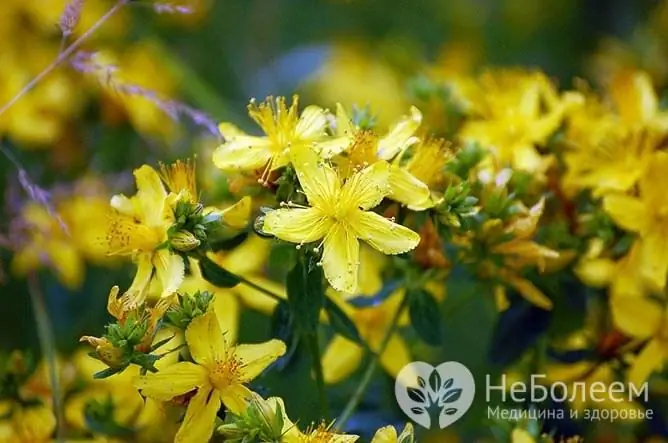
It is undesirable to combine reception of St. John's wort with drug therapy
It should be borne in mind that many pharmaceutical preparations are incompatible with St. John's wort.
Tea
Like ginger, it helps raise low blood pressure and lower high blood pressure. One cup of strong tea is enough to raise the tone, give strength and get rid of the unpleasant symptoms of hypotension - dizziness, weakness, drowsiness.
Tea contains many active substances that provide its tonic effect, the main of which is caffeine - an analeptic that stimulates the vasomotor and respiratory centers in the medulla oblongata. Thanks to this effect, the innervation of the vessels improves, their tone increases, the pressure stabilizes, increases.
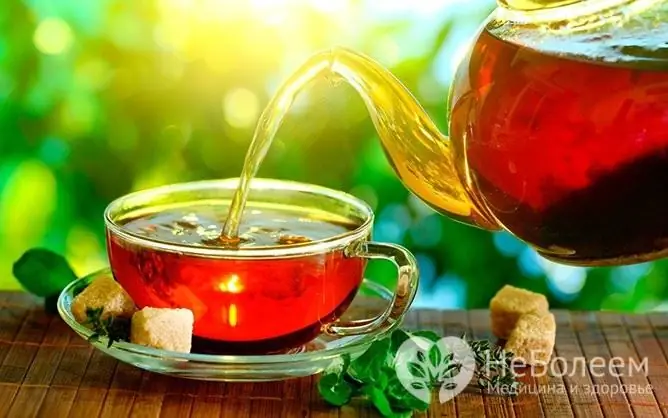
Tea helps to tone up, add strength and vitality
Tea is perfectly complemented by sugar or honey, and the glucose contained in them increases the density of the blood, which also contributes to an increase in pressure.
Video
We offer for viewing a video on the topic of the article.

Nikita Gaidukov About the author
Education: 4th year student of the Faculty of Medicine No. 1, specializing in General Medicine, Vinnitsa National Medical University. N. I. Pirogov.
Work experience: Nurse of the cardiology department of the Tyachiv Regional Hospital No. 1, geneticist / molecular biologist in the Polymerase Chain Reaction Laboratory at VNMU named after N. I. Pirogov.
Found a mistake in the text? Select it and press Ctrl + Enter.

